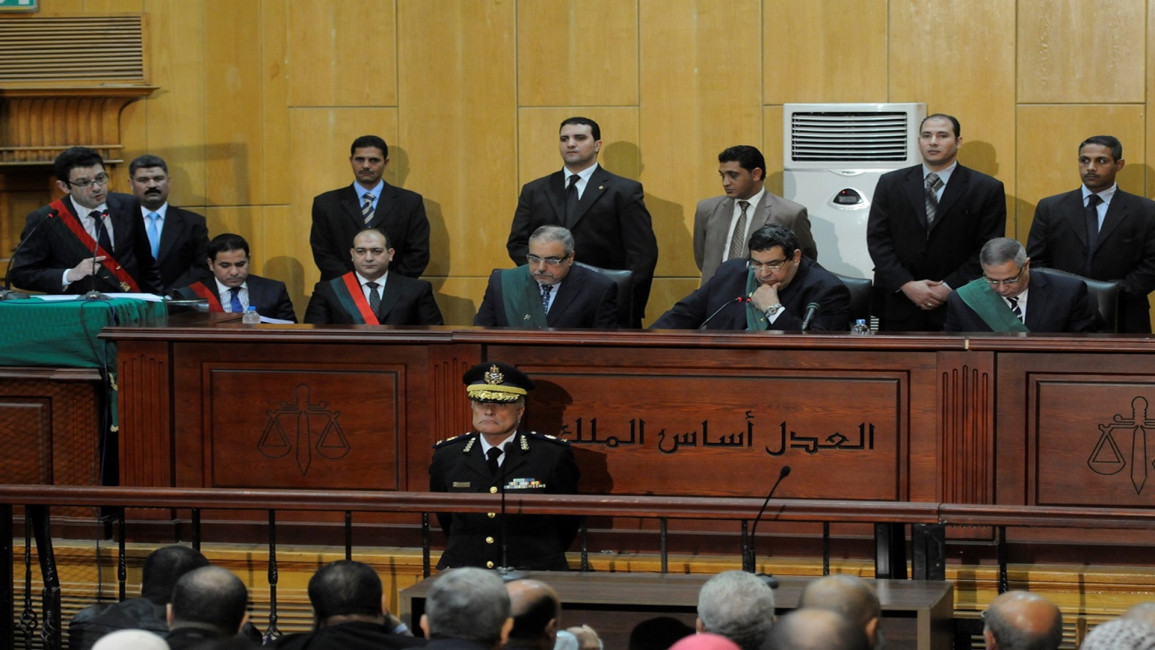Egypt to criminalise 'insults' against recent revolutions
Egypt to criminalise 'insults' against recent revolutions
President office says new law will make it illegal to insult revolts against Hosni Mubarak in 2011 and toppling of Mohammad Morsi last year.
2 min read
The Egyptian prosecution has filed an appeal against the Mubarak trial verdict [Getty]
Abdel Fatah al-Sisi's Egypt is to make it illegal to "insult" the revolts that toppled his two presidential predecessors, his office said on Wednesday.
Hosni Mubarak was forced to step down after an uprising lasting 18 days in January 2011 and his successor, the Islamist president Mohammad Morsi, was toppled by then-army chief Sisi after protests that started on June 30, 2013.
"A law is being drafted to criminalise insulting the January 25 and June 30 revolutions," Sisi's office said.
It did not state what constituted an insult, nor how such a law would adhere to the constitution's guarantee of freedom of expression. However, the announcement follows an intense, year-long media campaign denigrating the 2011 uprising and painting those behind it as foreign agents.
The president's office did not release a guide to when the new law would be implemented.
The move comes amid a growing perception that Mubarak's once hated three-decades of autocratic rule is being rehabilitated. A Cairo court on Saturday dropped murder charges against Mubarak and seven aides in a case focusing on the deaths of protesters in the 2011 uprising.
Morsi, the country's first freely elected president, is on trial in with his top assistants on a number of charges including murder, terrorism and corruption.
Since Sisi seized power, Egyptian courts have sentenced thousands of Morsi supporters to lengthy jail terms and many to death after mass trials described by the UN as "unprecedented in recent history".
Hosni Mubarak was forced to step down after an uprising lasting 18 days in January 2011 and his successor, the Islamist president Mohammad Morsi, was toppled by then-army chief Sisi after protests that started on June 30, 2013.
"A law is being drafted to criminalise insulting the January 25 and June 30 revolutions," Sisi's office said.
It did not state what constituted an insult, nor how such a law would adhere to the constitution's guarantee of freedom of expression. However, the announcement follows an intense, year-long media campaign denigrating the 2011 uprising and painting those behind it as foreign agents.
The president's office did not release a guide to when the new law would be implemented.
The move comes amid a growing perception that Mubarak's once hated three-decades of autocratic rule is being rehabilitated. A Cairo court on Saturday dropped murder charges against Mubarak and seven aides in a case focusing on the deaths of protesters in the 2011 uprising.
Morsi, the country's first freely elected president, is on trial in with his top assistants on a number of charges including murder, terrorism and corruption.
Since Sisi seized power, Egyptian courts have sentenced thousands of Morsi supporters to lengthy jail terms and many to death after mass trials described by the UN as "unprecedented in recent history".



